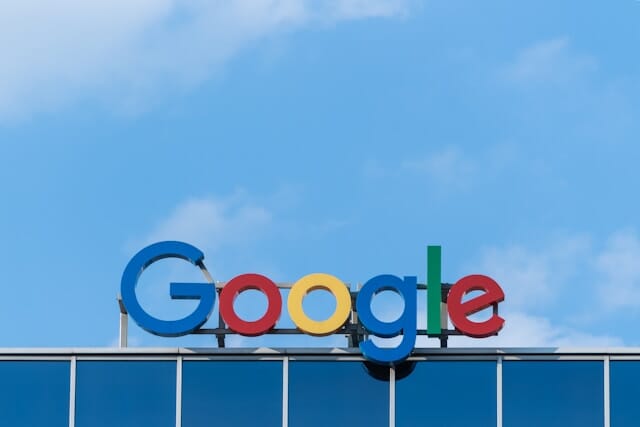Your Gmail account could be NEXT. Imagine hackers logging into your inbox, stealing personal photos, financial details, and resetting every password you own. This is not a movie plot. It's happening right now with the 183 million Gmail password leak shaking the internet.
Tens of millions of Gmail users are exposed. Don't panic, but act fast. In this ultimate guide, we'll reveal exactly what happened, how to check if you're hacked, quick fixes for Gmail, and why you MUST use secure email alternatives instead of Gmail.
183 Million Gmail Password Leak: What Really Happened in 2025?
Shocking news hit October 26, 2025: A massive 183 million email passwords dump surfaced online. Gmail accounts? Millions compromised.
This wasn't a Google server hack. Infostealer malware struck first. Malicious software infected devices worldwide, stealing saved passwords from browsers like Chrome. Hackers compiled logs into one gigantic breach file and posted it for sale.
Gmail vs. Email: Understanding the Difference
Many people use "Gmail" and "email" interchangeably, but they are not the same. Understanding this distinction is the first step in building a more resilient communication strategy.
- Email: is the general method of exchanging digital messages over the internet. It's the universal protocol, just like "snail mail" is a system for physical post. Other services like Yahoo Mail and Outlook also operate within this email system
- Gmail: is simply one specific email service provider, owned by Google . It's a single implementation of the broader email concept.
Think of it this way: Email is the entire concept of "transportation," while Gmail is one specific "car model" you can choose to use. Putting all your trust in one car model is risky, especially if a flaw is discovered that affects every model on the road.
Why Your Business Should Look Beyond Gmail
While Gmail is a powerful and free tool, the recent breaches and its inherent nature as a consumer-grade product present significant drawbacks for businesses.
1. The Target on Gmail's Back
With approximately 2.5 billion users, Gmail is the world's largest email provider. This immense size makes it the most attractive target for hackers. A single successful phishing campaign or security flaw can potentially expose a vast number of accounts, as we've just witnessed. A less ubiquitous professional email service makes your business a smaller, less attractive target in the cyber landscape.
2. The "Free" Cost of Brand Perception
Using a generic Gmail address (e.g., [email protected]) can undermine your company's professionalism. A custom domain email (e.g., [email protected]) builds immediate trust and brand credibility with every message you send. . It signals that your business is established and serious about its identity.
3. Consolidating Risk
Using Gmail as your primary account for logins, communications, and file storage creates a single point of failure. If your Gmail account is compromised, a hacker can potentially reset passwords for your bank, social media, and other critical services linked to that address. Diversifying your email accounts for different purposes helps contain security breaches.
Key facts on 183 million Gmail password leak:
- Total accounts: 183,066,310
- Gmail victims: Over 20 million confirmed
- Passwords: Stored in plain text - hackers see everything
- Other targets: Hotmail, Yahoo, Outlook
- Source: Infostealer logs from April 2025 onward
Why so dangerous? Reused passwords mean one leak = total takeover. Your bank, social media, work files? All at risk. Gmail's dominance (1.8 billion users) makes it prime target.
Gmail Password Leak Check: Is YOUR Account in the 183 Million Breach?
Step 1: Instant Exposure Scan (FREE, 30 seconds)
- Go to haveibeenpwned.com
- Enter your Gmail address
- Red flag? You're leaked 16+ times on average
Step 2: Google's Password Checkup
- Open Chrome > Settings > Passwords
- Click "Check passwords"
- Red icons? Change NOW
Step 3: Full Breach Alert
Use Firefox Monitor or Kaspersky Password Check
Why Ditch Gmail After 183 Million Password Leak? Use Secure Email Instead!
Gmail's Dirty Secrets Exposed:
- Data Mining: Google scans emails for ads targeting
- Weak Encryption: Emails not end-to-end encrypted
- Massive Target: 1.8 billion users = hacker goldmine
- Third-Party Risks: Apps with Gmail access can leak data
- Data sold to advertisers
Secure email = YOUR data, YOUR rules.
- Zero scanning
- End-to-end encryption
- Anonymous signup
- Unlimited aliases (throwaway emails)
Top 7 Secure Email Alternatives to Gmail (2025 Ranked)
- Proton Mail: #1 Gmail Killer (Best Overall)
- Tutanota (Tuta): Cheapest Privacy Beast
- Fastmail: Speed + Custom Domains
- Zoho Mail: Free Business Power
- Mailfence: EU Fortress
- StartMail: Simple + Secure
- Outlook.com: Microsoft Freebie (Runner-Up)
Beyond the Breach: Building a Safer Future
. While Google's free service is convenient, its very nature as a massive, centralized platform makes it a prime target. For personal use, the steps to enable 2FA and passkeys are non-negotiable. For your business, however, the smarter long-term strategy is to diversify your identity and reduce your target profile by adopting a professional, custom-domain email.
Don't let your business communication be vulnerable to the next widespread leak. Take control of your digital identity, enhance your security, and build a brand that customers can trust.
Read More
- Elon Musk Launches Grokipedia: The AI Encyclopedia Set to Outrank Wikipedia and Answer Every Search Query!
- I Tried ChatGPT Atlas Browser: 5 Must-Know Features That Blow Away the Competition
- X Will Soon Display Your Country on Profiles: What It Means for You
- 7 Shocking VPN Myths You Didn't Know and What's Actually True
